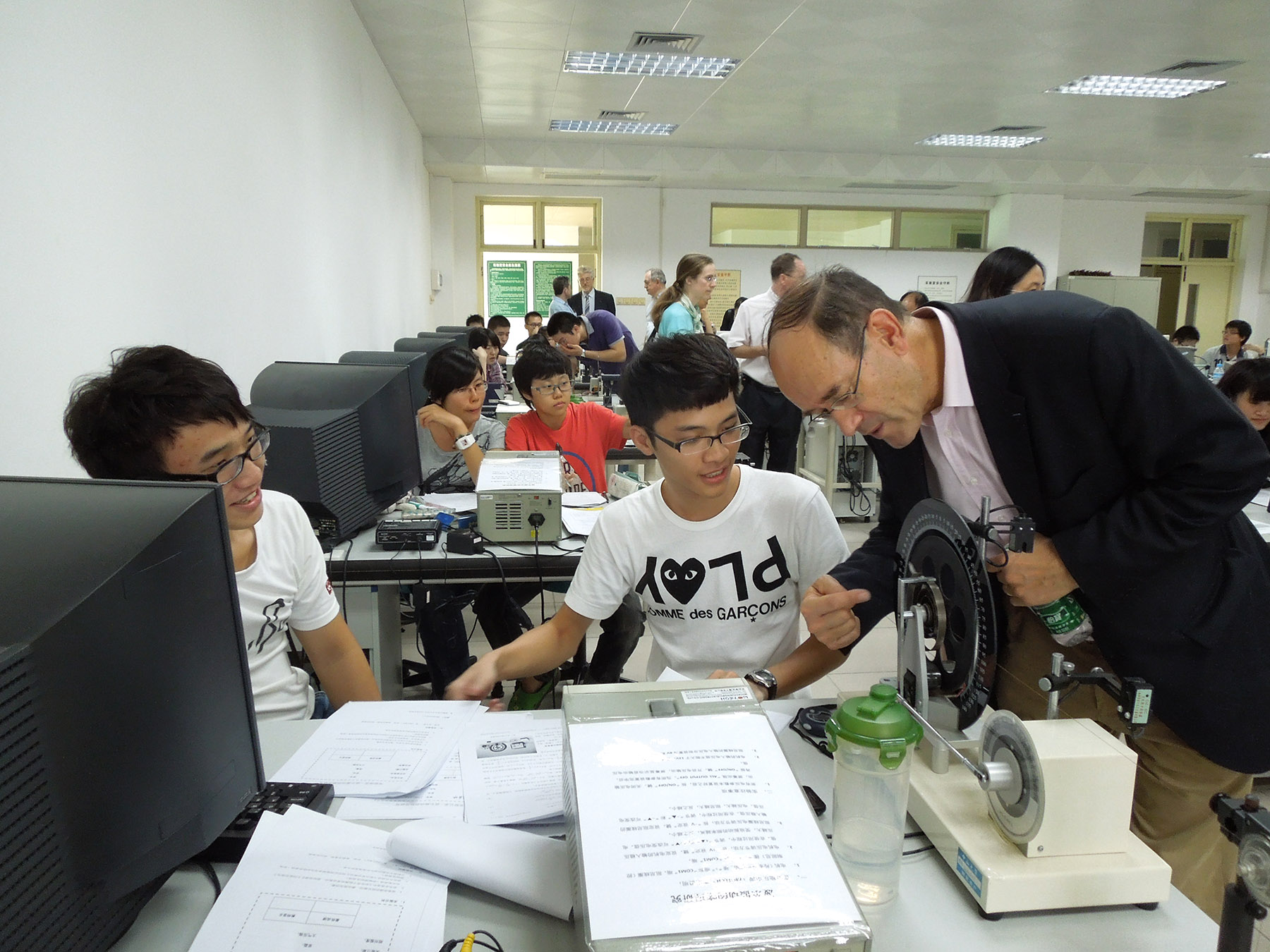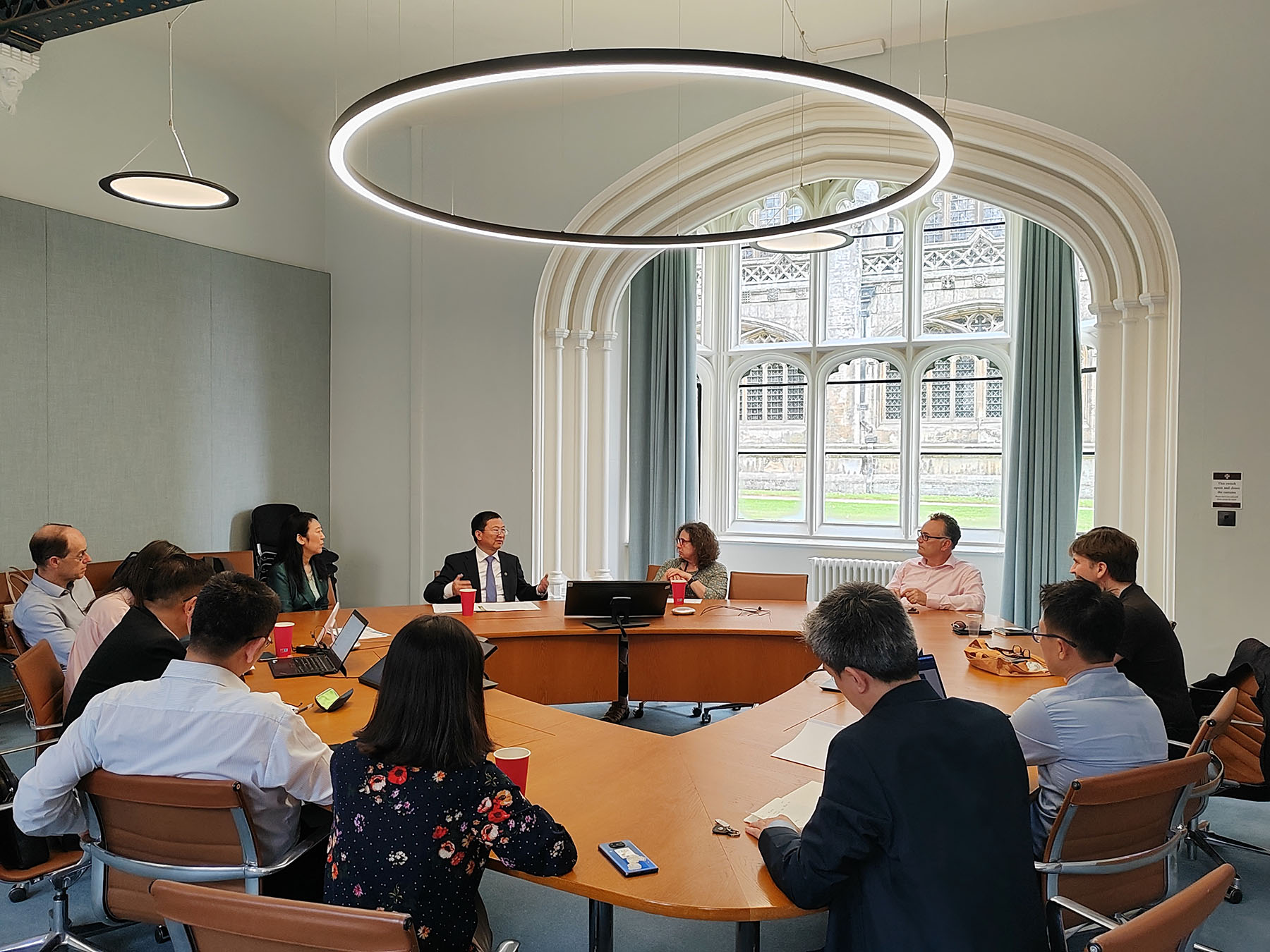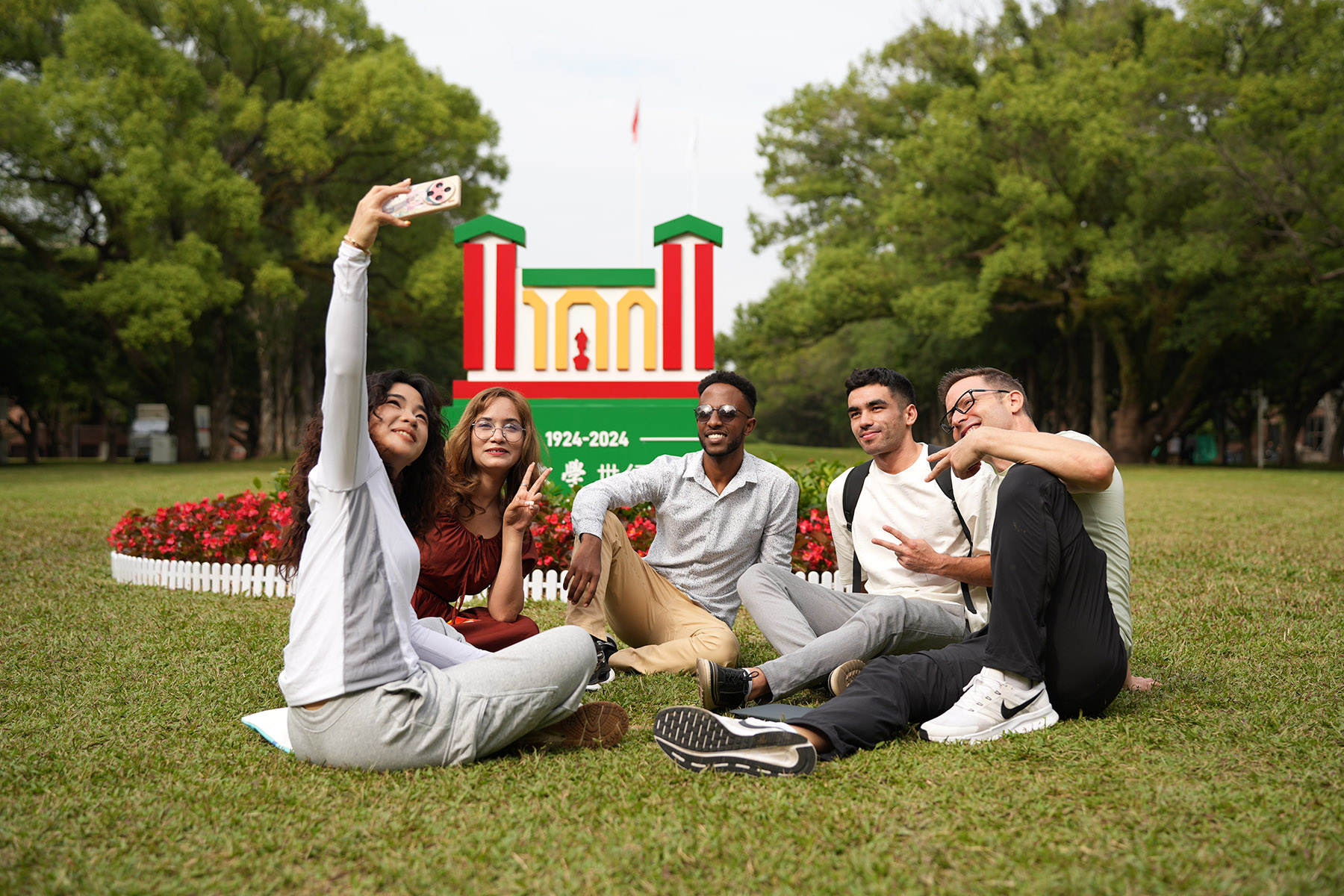
Situated in Guangdong province, which has stood at the forefront of the country's exchange and cooperation with other countries and regions, Sun Yat-sen University has expanded its connections with its counterparts overseas.
The university has established cooperative relations with 290 institutions of higher learning, 62 of which are on the world's top 100 list, and research institutions and international organizations located in more than 40 countries and regions.
Such relations have supported the development of its academic disciplines, led to concrete joint projects and teams, and facilitated its participation in global governance, forming an important driving force behind the university's high-quality development.
The university's Tianqin Center for Gravitational Physics, which is engaged in gravitational wave research, has been collaborating with Lomonosov Moscow State University, the Max Planck Institute for Gravitational Physics and the University of Glasgow in building a state-of-the-art science center.
The space-based gravitational wave detection program, Tianqin, will consist of three satellites forming an equilateral triangle around the Earth by 2035.
The First Affiliated Hospital of Sun Yat-sen University has carried out in-depth cooperation with the Brigham and Women's Hospital, Dana-Farber Cancer Institute and the Joslin Diabetes Center, all affiliated with Harvard Medical School, in academic discipline building, talent cultivation and remote medical service.

It also created an international robotic surgery training center in 2023 with the University of California at Berkeley; University of California, Davis; and the Center for Information Technology Research in the Interest of Society, which is a research unit of the University of California.
The hospital also cooperates with institutions such as the Association for Medical Education in Europe, the University of Birmingham, the Johns Hopkins University School of Medicine and the Chinese University of Hong Kong across a wide range of fields.
The Sino-French Institute of Nuclear Engineering and Technology is located on campus in Zhuhai. It is a joint project with a French consortium for the training of civil nuclear engineers led by Grenoble INP-UGA, and was inaugurated in 2010.
READ MORE: Principles see centennial Sun Yat-sen University destined for success
The institute trains Chinese students who are to work in the nuclear field and in the Sino-French nuclear industry, with China and France having a long history of collaboration in the nuclear field, said Jean-Marie Bourgeois-Demersay, dean of the institute.
Each year, it enrolls between 80 and 120 students and sends groups of Chinese students to France, who will join the partner schools. Many of them stay in France for their PhD program after graduation. The employment rate of the alumni is almost 100 percent, Bourgeois-Demersay said.
The institute has foreign teachers, mostly from France, who live in Zhuhai, as well as visiting foreign teachers, having received more than 50 visiting professors since 2010.
These make a good measurement of both the attractiveness and achievement of the program, he said.

Recently the collaboration was extended again to 2028, with a new master program implemented on nuclear application in the medical field.
"This is an important area for our future development and we believe it will be very attractive to our students," Bourgeois-Demersay said.
In 2020, the university and UNESCO agreed to set up a teaching post on sustainable tourism in UNESCO World Heritage Sites at the university.
In the latest development in the Guangdong-Hong Kong-Macao Greater Bay Area, Sun Yat-sen University unveiled its Institute of Advanced Studies Hong Kong in the Hong Kong Science Park in October.
The institute will focus on biological medicine, applied mathematics, and humanities and social sciences, with a plan to build world-leading labs and a goal of facilitating the research and application of leading-edge technologies.
The university also signed agreements in October with a number of universities in Hong Kong for cooperation in fields such as medical sciences, energy technology and biology.
ALSO READ: Ancient wisdom of Confucius resonates loudly with young people
The proximity to the Hong Kong and Macao special administrative regions is a geographical advantage for Sun Yat-sen University. Hong Kong is home to five of the world's top 100 universities and Sun Yat-sen University has close cooperation with universities there, said Gao Song, president of Sun Yat-sen University.
As one of the most open and economically dynamic regions of the country, the Greater Bay Area also enjoys the advantage of synergized policies, said Fu Zhengping, professor of the university's School of Business and dean of the Institute of Free Trade Zones.
The university will boost international exchanges and cooperation, continue to advance reforms, and foster a sound international environment to add new dynamics for turning the university into a world-class university with Chinese characteristics, Gao said.


